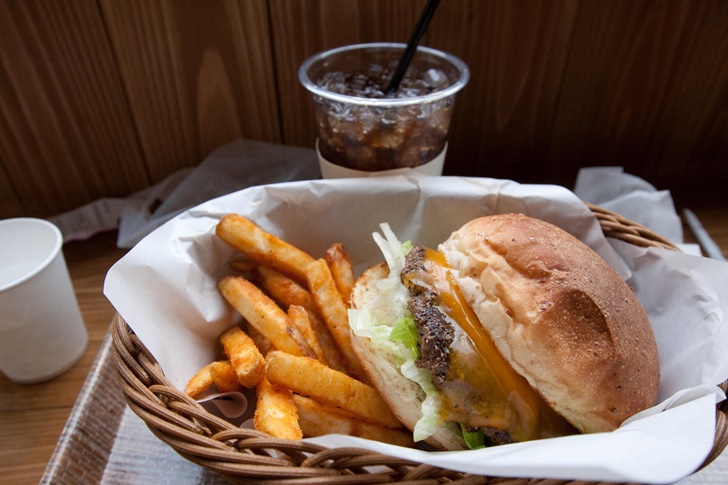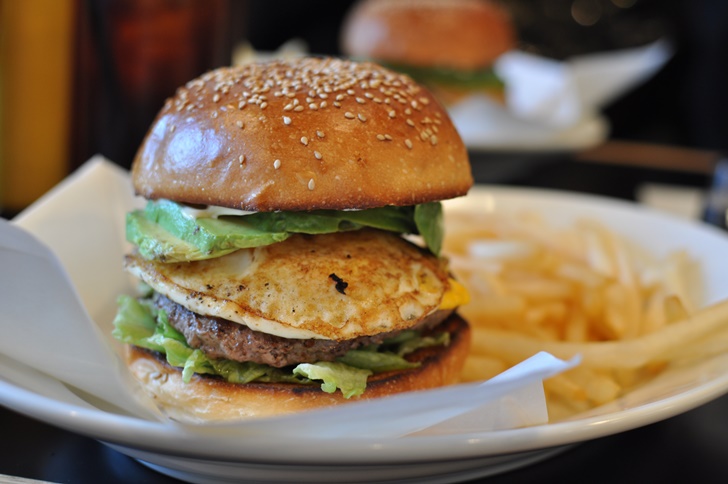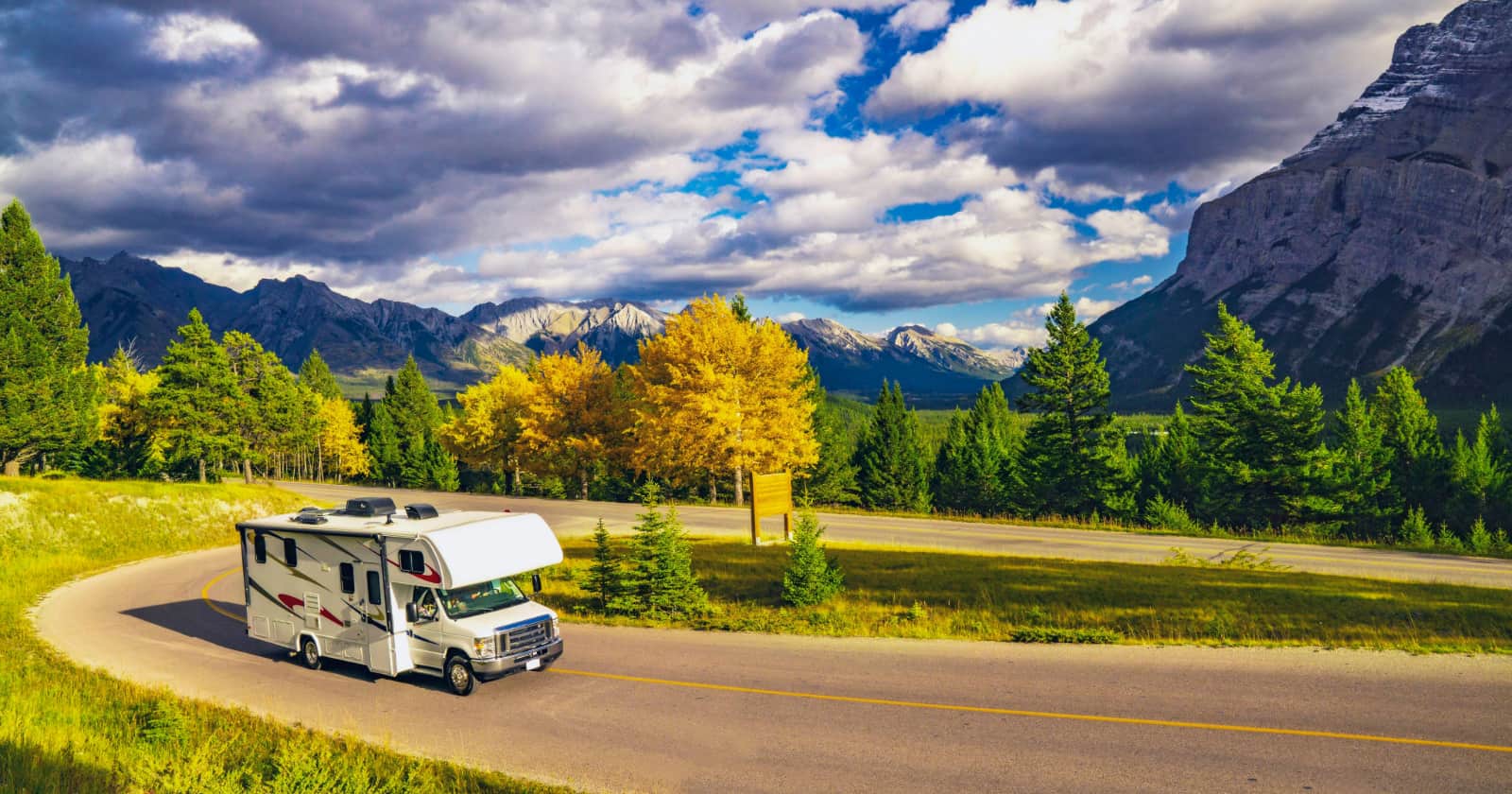Going out for a nice meal can be expensive, but it’s worth it every now and then. You deserve taking the night off from cooking sometimes, and getting to try new and local restaurants is one of the many great experiences to have while traveling. But you can always cut down food expenses in other ways, and still eat healthy while doing so.
1. First and foremost, make full use of your RV’s kitchen.
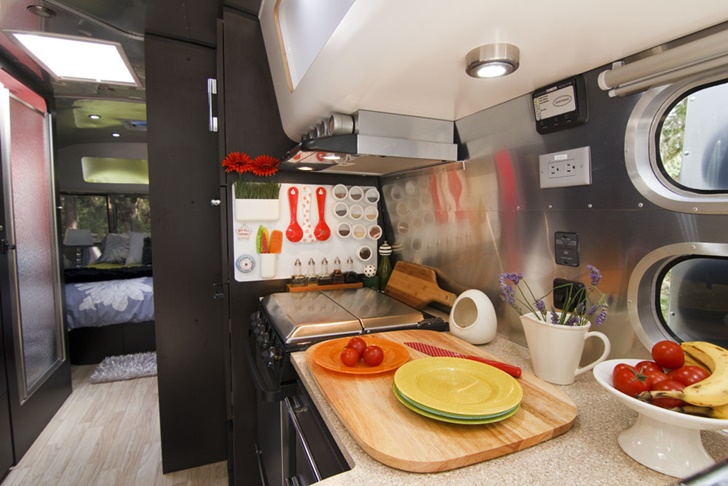
Restaurants are nice once in awhile, but for most nights, making homemade meals in your RV is the best way to save the most money. You don’t even need to be Gordon Ramsay to whip up great food – appliances like Instant Pots and Crockpots can make cooking on the road a breeze.
2. Save (and actually finish) leftovers.
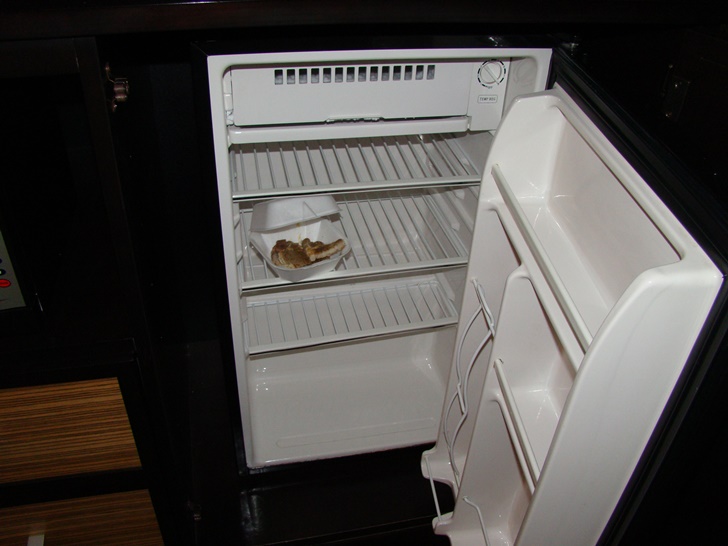
I’m guilty of forgetting leftovers sometimes, but when I do reheat them they always taste just good as the first time. It’s a great way to get the most bang for your buck – after all, if you are going to grab food from a restaurant, you might as well enjoy every bite of what you paid for, even if that means tossing it in a to-go box and finishing it for dinner later that evening. Sometimes they’re even better by the next day, after all of the ingredients have had time to marinate.
3. Read online reviews for cheap eats near you.
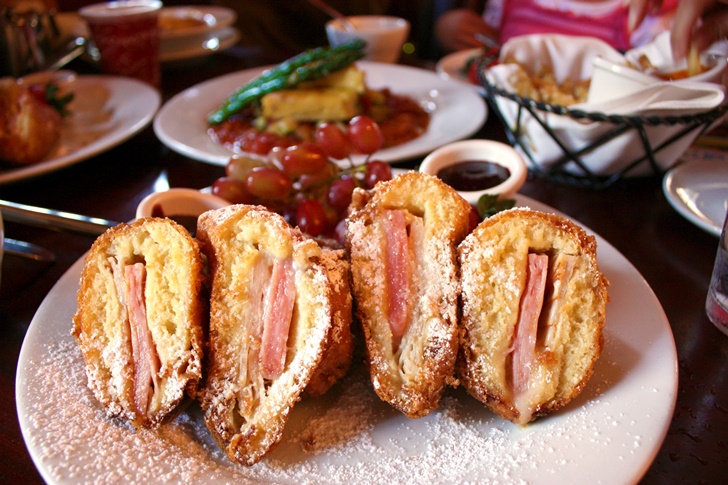
Monte Cristo Sandwich by Jocelyn & Cathy . is licensed under CC BY-NC-ND 2.0
If you can get WiFi, searching websites like Yelp and TripAdvisor is a great way to find affordable eats in your area. If you’re a parent, they can also point you in the right direction of restaurants that allow kids to eat free.
4. Skip out on snacks at restaurants/cafes inside attractions and parks.
The last place you want to grab food is inside major attractions. It’s not that the food is bad – but the majority of them have skyrocketed prices for snacks and drinks, and most people will pay it just because it’s convenient, and they’re hungry. $12…for one hot dog?! I think I’ll pass.
5. Always keep bottled water on you.
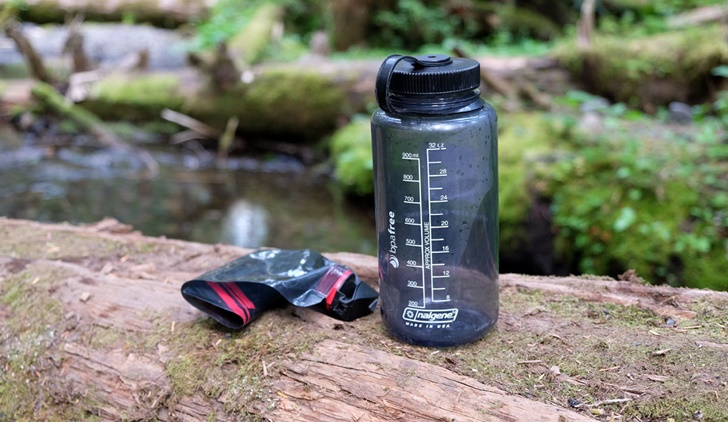
Keeping a bottle of water on you is a great idea regardless, just to stay hydrated. But it’s also a little known fact that your body can often mistake hunger for dehydration. It’s widely recommended to drink a full glass of water when you feel hungry just to make sure that’s what you’re really craving.
6. Plan your meals ahead of time.
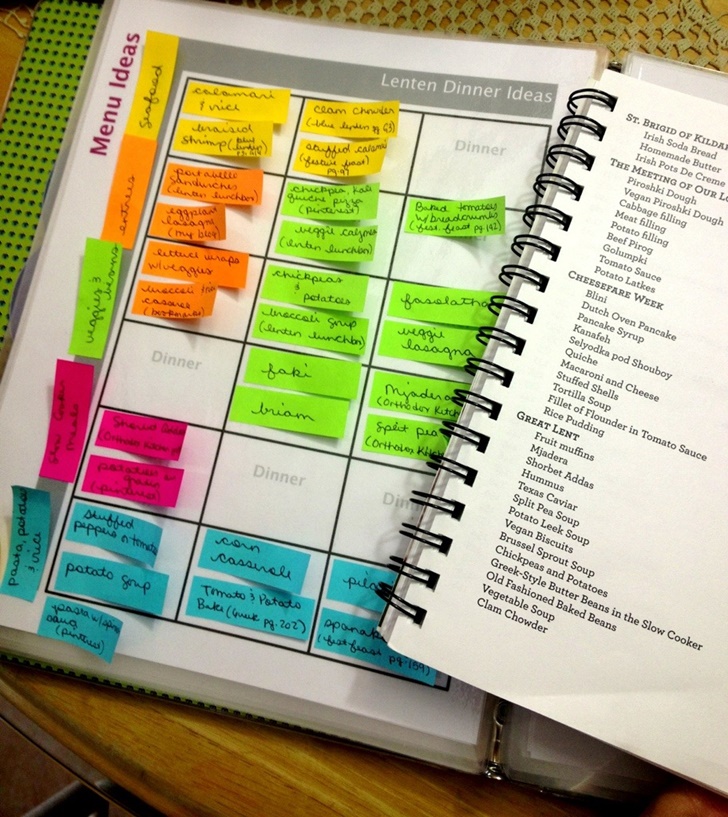
As with anything, planning out your meals ahead of time makes life and sticking to a budget so much easier. Print out meal templates from online, or even just write what meals you’d like to make during the week – and the ingredients you’re going to need – using a regular pen and notepad.
7. Google if any campgrounds and RV parks near you offer complimentary breakfast, brunch and/or lunch.
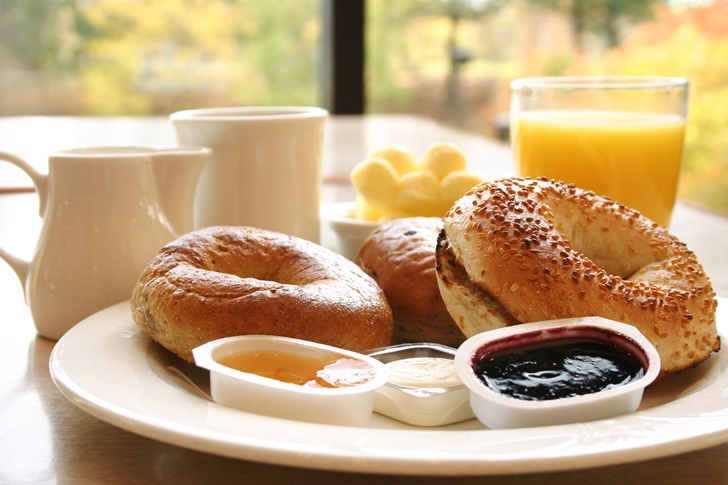
Hey, you never know what you’ll find. Just a quick search online may bring up local spots that offer a free meal as an amenity. Here are a few highly rated examples we rounded up:
- Lazydays RV Resort in Seffner, Florida
- Gulf Coast RV Resort in Beaumont, Texas
- Mountain Gate RV Park in Redding, California
- Santa Cruz Redwoods RV Resort in Felton, California
- Joyful Journey Hot Springs Spa in Moffat, Colorado
8. Get lunch instead of dinner if you are going to visit a restaurant.
Many restaurants have nearly-identical lunch and dinner menu options, except the lunch dishes are usually a little cheaper. If you are thinking of checking out a restaurant while you’re in town somewhere, plan to go at lunch and enjoy leftovers or a homemade dinner later on.
9. Always keep snacks on you.
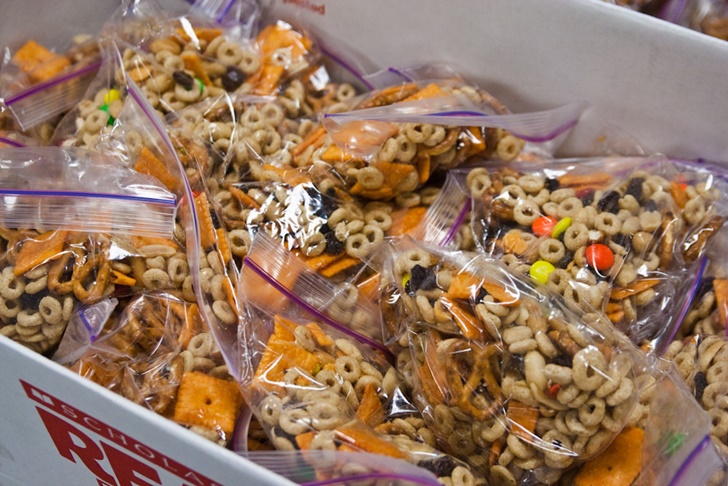
Small snacks like nuts, crackers, Cheerios and trail mix are great to have on hand when you just feel like munching on something. Plus they won’t go bad, so it’s easy to stock up on them and always have something to snack on between meals.
10. Buy your own alcohol.
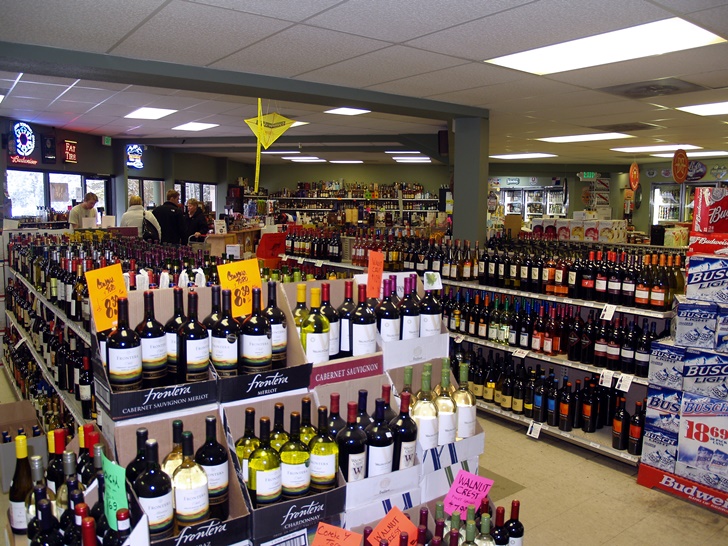
David Shankbone
Some people will tell you to skip alcohol to cut down on food costs, but I beg to differ. Trying the different varieties of beers and wines in different regions of the country is just as wonderful as tasting all of the various types of cuisine. But instead of ordering pricey cocktails, beers and glasses of wine at restaurants, opt to stock up on your favorite bottles from regular grocery stores instead to help cut down on your bill.
Do you have any tips for saving money on food on the road? We’d love to hear your insight and comments below.

